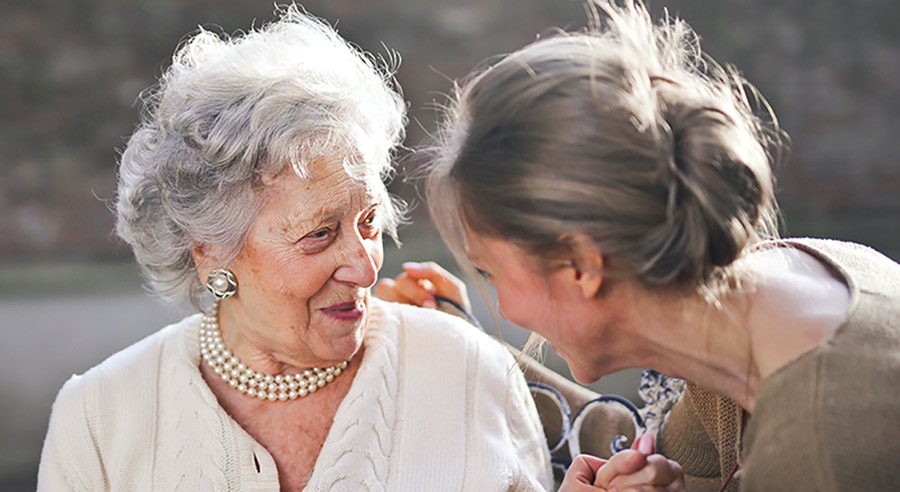Top Home Care Providers in Australia: Discover the Best In Home Caregivers for Your Requirements
Wiki Article
Just How In Home Care Givers Address the Special Challenges and Psychological Demands of Households Looking For Assistance for Their Relatives
In-home caregivers play a critical function in navigating the intricacies encountered by families looking for support for their loved ones. By understanding special household dynamics and offering tailored psychological support, these specialists not just address prompt care requirements but likewise foster an environment of trust fund and open interaction (home care providers).Understanding Family Members Characteristics
Understanding family members characteristics is important for supplying effective at home treatment, as each family runs within an unique collection of interactions and connections. These dynamics encompass various elements, consisting of communication designs, duties, and power frameworks that affect just how care is provided and received. The caregiver needs to recognize these factors to guarantee that treatment plans line up with the household's worths and assumptions.Different family members may display distinctive patterns of communication, such as ordered frameworks or joint strategies. In some families, a primary decision-maker may hold substantial impact, while in others, choices may be more autonomous. Comprehending these patterns aids caregivers customize their methods to fit the family's details requirements.
Additionally, cultural backgrounds play a crucial function fit household dynamics. Caretakers must be culturally qualified, acknowledging and respecting varied techniques and ideas that may affect treatment choices.
Eventually, an extensive understanding of family characteristics assists in enhanced communication, cultivates depend on, and enhances the caretaker's capability to support the family members efficiently. By recognizing the complex web of responsibilities and partnerships, caregivers can create an encouraging setting that advertises well-being for both the individual receiving treatment and the family in its entirety.
Offering Emotional Assistance
Supplying emotional support is a vital component of at home treatment that considerably enhances the wellness of both the individual obtaining care and their household members. In the context of caregiving, psychological support entails active listening, compassion, and recognition of sensations. Caregivers are educated to recognize the psychological struggles that family members deal with, such as seclusion, guilt, and stress and anxiety, and to provide a caring visibility that alleviates these burdens.By cultivating open interaction, caregivers develop a risk-free room for member of the family to share their concerns and anxieties. This dialogue not only encourages emotional release but also strengthens count on between the family and the caregiver. Additionally, caregivers can provide functional techniques to assist family members manage stress and anxiety and promote durability.

Inevitably, the psychological assistance offered by in-home caretakers enhances the lifestyle for both customers and their family members, promoting an extra compassionate and understanding caregiving environment. This holistic technique guarantees that emotional demands are addressed along with physical health considerations.
Taking Care Of Daily Care Tasks
Taking care of day-to-day treatment jobs is a critical facet of in-home treatment that ensures individuals obtain the assistance they need to maintain their health and wellness and independence. Caretakers play an important role in assisting with activities of daily living (ADLs), which consist of showering, clothing, brushing, and dish preparation. By taking on these obligations, caretakers help reduce the physical and emotional worries that households might encounter while taking care of their loved ones.
Along with personal treatment, caregivers are also entrusted with medicine monitoring, making sure that customers adhere to prescribed dosages and schedules. This oversight is critical for preserving health and wellness and stopping damaging impacts from missed out on or wrong medications. Caretakers usually help with wheelchair, giving support for clients relocating around their homes, thus minimizing the threat of falls and enhancing overall security.

Cultivating Open Communication
Effective administration of day-to-day care tasks often depends upon the top quality of communication in between caregivers, customers, and their family members. Open interaction cultivates an environment where problems, choices, and feedback can be openly exchanged, making certain that treatment is customized to satisfy private needs. Caretakers ought to focus on normal check-ins with both clients and their households, assisting in discussions that address any problems or check that changes in care requirements.Utilizing various interaction approaches-- such as face-to-face meetings, telephone call, and created updates-- can improve understanding and give family members with tranquility of mind. It's essential for caretakers to actively pay attention, demonstrating compassion and regard for the emotional landscape of the household. Urging inquiries he has a good point from member of the family can likewise help clear up treatment strategies and enhance the caretaker's dedication to transparency.
Furthermore, keeping open lines of interaction enables caretakers to acknowledge and respond without delay to any type of changes in a customer's wellness condition or emotional wellness. This aggressive strategy not just strengthens the caregiver-client vibrant however also equips families to take part actively in the treatment process. Ultimately, cultivating open communication is essential for improving the high quality of in-home care and promoting an encouraging ambience for all included.
Building Trust Fund and Relationships
Count on is the keystone of effective at home treatment, as it develops a foundation for meaningful partnerships between caretakers, clients, and their family members. Structure this count on needs consistent, clear interaction and an authentic commitment to the health of those included. Caretakers need to show reliability via preparation, adherence to care plans, and responsiveness to the demands and preferences of clients.To cultivate count on, caretakers ought to involve in energetic listening, making certain that households really feel listened to and recognized. This includes not only addressing instant worries yet also preparing for future requirements, thus equipping families and boosting their sense of control. Developing rapport with shared experiences and respectful interactions can even more strengthen these partnerships.
Furthermore, caregivers need to be trained to acknowledge and attend to the emotional complexities dealt with by family members. By revealing compassion and concern, they can relieve anxieties and unpredictabilities, reinforcing count on. Normal updates and check-ins with relative can likewise boost transparency, permitting them to feel engaged and notified about their liked one's treatment.
Inevitably, constructing trust fund and nurturing relationships in at home treatment is a collaborative procedure that substantially affects the high quality of treatment given, fostering a supportive environment that benefits every person entailed.
Verdict
By understanding family members dynamics, giving psychological assistance, and fostering open interaction, caretakers boost the general caregiving experience - in home caregivers. Their ability to handle everyday you can look here care jobs while developing trust and strong partnerships grows a supportive environment for customers and their family members.Comprehending family dynamics is vital for supplying reliable at home care, as each family members runs within an unique collection of interactions and relationships.Giving emotional support is an essential part of at home care that significantly boosts the well-being of both the specific receiving treatment and their family participants. By taking on these duties, caregivers help reduce the psychological and physical burdens that families might deal with while caring for their loved ones.
Efficient monitoring of everyday treatment jobs commonly pivots on the quality of interaction in between caretakers, customers, and their family members - home care providers.Trust fund is the keystone of effective at home treatment, as it establishes a foundation for purposeful relationships between caretakers, customers, and their families
Report this wiki page